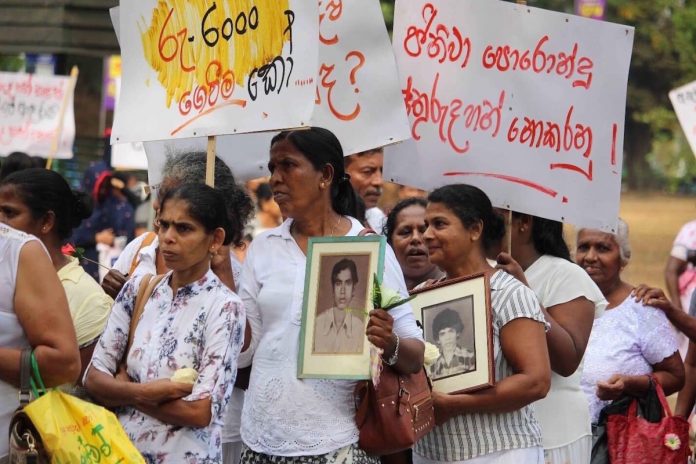The Lenten season is here. It starts with Ash Wednesday, a day that helps us realize that “from dust we came and from dust we shall return.”
It is an opportune time to practice humility expressed in communal prayer, repentance, examination of conscience, and confession. Reflective is the mood and penitential is the homily during Mass.
The congregation is invited to receive the ashes. The ashes symbolize our mortality and our ability to overcome sin.
When we receive these ashes, we are remorseful of our sins and are resolved to rectify our mistakes, resolved to not commit them again, purify our hearts, and be worthy of our being Christians.
By doing so, we prepare ourselves to partake in the joys of Easter.
As we begin the commemoration of the Lord’s passion, death and resurrection, I reflect on the lives of the thousands of families of the disappeared, especially in Sri Lanka, whom I met many times.
Sri Lanka is a country that has the highest number of cases of disappearances worldwide. This month, they commemorated “Missing Lovers’ Day.”
On Valentine’s Day, members of the group Families of the Disappeared, represented by more than a thousand family members of desaparecidos from nine districts in the southern and eastern parts of the country, gathered at a park under the scorching heat of the sun.
The gathering was one of the many times during the past three decades when victims’ families expressed their love for their “missing lovers” by indefatigably retelling their stories and demanding support from the government and from the international community.
In their never-ending quest, I feel the passion and death of the Lord Jesus Christ. During those beautiful opportunities when I met the victims’ families, in tears, they shared documents of their disappeared loved ones.
It is with their hope amidst despair that I could concretely help resolve their cases. But knowing that looking for the desaparecidos is like finding a needle in a haystack, I was frustrated by my helplessness.
Civil society organizations can only do so much. I failed to provide them with what they badly needed — the return of their loved ones alive.
The normal cycle of life supposedly starts with conception and continues with birth, childhood, adulthood, old-age, death, and burial or cremation. But can the desaparecidos, who came from dust, also return to dust? Where are they? If killed, were they accorded their final rites?
These questions, asked by every family of the disappeared, more often than not, remain unanswered.
As Christ suffered the untold pain of His crucifixion, the desaparecidos’ families likewise feel the pain of their deep and festering wounds.
“Then the Lord God formed a man from the dust of the ground and breathed into his nostrils the breath of life, and the man became a living being.”
Anathema to this Biblical passage is enforced disappearance, where the desaparecidos’ destiny to return to dust is distorted due their state of limbo; where their lives are desecrated.
As the Catholic world marks Ash Wednesday, a profound remorse on people’s apathy on the plight of the families of the disappeared and their missing lovers is called for.
Compelling it is for perpetrators to repent, confess and make amends to attain truth and justice.
On this day, we pray for genuine contrition, one that comes with the readiness to be meted with justice for the treacherous act of disappearing people. Then and only then will truth, justice, reparation and guarantees of non-repetition be truly realized.
Mary Aileen D. Bacalso is former secretary general of the Asian Federation Against Involuntary Disappearances. For her work against enforced disappearances, she was awarded the 2019 Franco-German Ministerial Prize for Human Rights and the Rule of Law. In 2013, the Argentinian Government awarded her the Emilio F. Mignone International Human Rights Prize. The views expressed in this article are the opinions of the author and do not necessarily reflect the editorial stance of LiCAS.news









